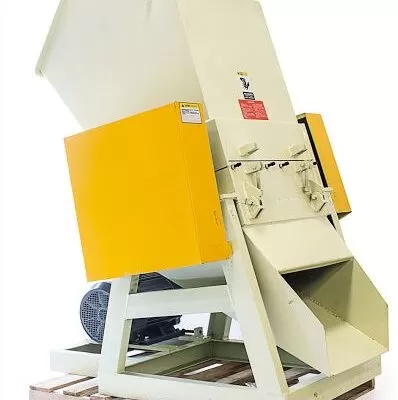Plastic waste is piling up. It’s a problem we can’t ignore. Landfills are overflowing, oceans are choking, and our environment is at risk. The solution? Recycling and reusing plastic. But how? Specifically, what can we do with ground plastic?

Ground plastic can be used in various applications. It’s versatile and valuable. From construction materials to consumer goods, ground plastic finds its way into many industries, offering sustainable solutions and reducing waste.
You might be thinking, “Great, but how exactly can ground plastic be used?” Let’s dive into the details.
Can Ground Plastic Be Used in Construction?
Absolutely! One of the most significant uses of ground plastic is in construction. Mixed with asphalt, ground plastic can create more durable and flexible roads. This method not only recycles plastic but also improves the quality of the infrastructure. Additionally, ground plastic is used in producing plastic lumber, which is ideal for decking, fencing, and outdoor furniture. It’s weather-resistant and doesn’t splinter like traditional wood.
How About in Manufacturing New Products?
Ground plastic is a fantastic resource for manufacturing new products. It can be molded into a variety of items, from packaging materials to household goods. Companies use ground plastic to produce containers, bins, and even toys. This process not only saves raw materials but also reduces production costs.
Can It Be Used in Textiles?
Yes, ground plastic is making waves in the textile industry. Recycled plastic fibers are used to create fabrics for clothing, upholstery, and carpets. These fabrics are durable, easy to clean, and environmentally friendly. Brands are increasingly adopting recycled plastics to appeal to eco-conscious consumers.
Is Ground Plastic Useful in Agriculture?
Ground plastic has found its way into agriculture as well. It’s used to make plastic mulch, which helps retain soil moisture, reduce weeds, and improve crop yields. Additionally, recycled plastic is used to create irrigation pipes and greenhouse covers, offering sustainable alternatives to traditional farming methods.
How Does It Benefit the Automotive Industry?
The automotive industry is another significant user of ground plastic. Recycled plastic is used in manufacturing car parts, such as dashboards, bumpers, and interior trims. This not only reduces the vehicle’s weight, improving fuel efficiency, but also minimizes the industry’s environmental footprint.
Can Ground Plastic Be Turned Into Art?
Believe it or not, ground plastic has a place in the art world. Artists and designers use recycled plastic to create sculptures, installations, and various forms of visual art. This innovative use of plastic not only promotes recycling but also highlights the material’s potential in creative fields.
What About Packaging?
Packaging is a significant area where ground plastic is extensively used. Recycled plastic packaging helps reduce waste and the demand for virgin materials. It’s used for making bottles, containers, and wrapping films. This sustainable packaging option is increasingly preferred by companies aiming to reduce their environmental impact.
Can It Be Used in Consumer Electronics?
Yes, consumer electronics are another field where ground plastic is utilized. Components like casings, keyboards, and other parts are made from recycled plastic. This helps in managing electronic waste and conserving resources.
How Does Ground Plastic Help in Building Insulation?
Ground plastic is also used in the construction industry for insulation purposes. Recycled plastic fibers are turned into insulation materials that are energy-efficient and provide excellent thermal insulation. This application helps reduce energy consumption in buildings, making them more sustainable.
Is There a Role for Ground Plastic in Landscaping?
Indeed, ground plastic plays a role in landscaping. It’s used to create garden products like planters, compost bins, and landscape edging. These products are durable and weather-resistant, offering a long-lasting solution for outdoor spaces.
Conclusion
Ground plastic is a valuable resource that can be used in various industries, from construction to consumer goods. By recycling and reusing plastic, we can significantly reduce waste and create sustainable solutions. The versatility of ground plastic demonstrates its importance in addressing environmental challenges. Let’s continue to innovate and find new ways to utilize this material.
That’s it! Ground plastic is more than just waste; it’s an opportunity for a greener future.
